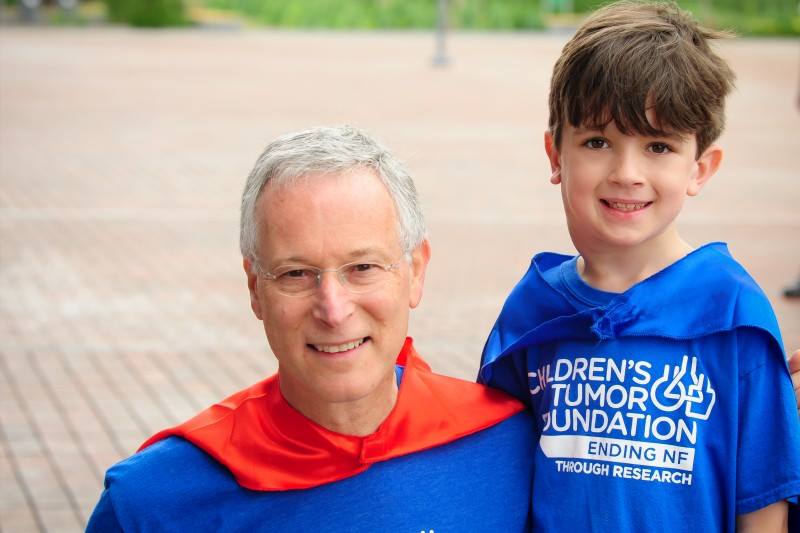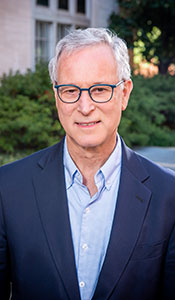When the last blog was posted, plans were underway for the first annual Birmingham NF Walk to raise funds for the Children’s Tumor Foundation (CTF), the major source of patient advocacy and research support for all forms of NF in both adults and children. I’m pleased to report that this landmark event for our city, held in Birmingham’s Railroad Park on May 10th, was wildly successful and raised more than $50,000 for CTF. In spite of an overcast day with an imminent threat of rain, more than 100 people participated in the NF Walk, which represents the first time that a major organized fundraiser for CTF was held in our city. While Birmingham is nationally recognized for NF research and clinical care, the success of this event has now put our city on the map in terms of fundraising for NF. The overall success of this inaugural fundraiser is due to the dedication and tireless efforts of a group of Birmingham families who have been affected by NF; I believe that their fundraising success will serve as a springboard for future events that will help support critical NF research focused on the development of breakthrough treatments. Dr.Korf with Philip Moss at the NF walk
Dr.Korf with Philip Moss at the NF walk
In early June, I attended two national events, held simultaneously in Washington, D.C., that have great importance in the NF community. The NF Conference, the preeminent annual event in the arena of neurofibromatosis research, attracts several hundred clinicians and researchers from around the world to present the latest developments in NF research and clinical care. The NF Forum, for which I had the privilege of serving as co-chair this year, is an annual meeting of patients and families that provides information about the latest medical advances in neurofibromatosis as well as support and advice for those living with NF. This was the second time these two events have been held adjacent to each other; for me, the most memorable aspect was the dinner attended by participants in both events. This joint session provided a unique forum for researchers and clinicians to learn firsthand about the concerns and struggles of those living with NF and gave patients and families the opportunity to meet those in the scientific community dedicated to developing new treatments. Dr. Francis Collins, who discovered the first NF1 gene and serves as director of the National Institutes of Health (NIH), was the speaker during this powerful session. It was an inspirational experience to learn how both of these groups are working, in different ways, toward the same end – finding effective treatments for NF. I was also impressed by the number of new ideas for treatments that are currently being tested in mouse models and clinical trials. Many of the ideas discussed in previous meetings a few years ago have been implemented in the research setting are now the central focus of scientists’ work in the laboratory.
I came away from these meetings excited about the level of patient engagement and grateful for the ability to provide patients with information to help them become more involved in their care. This will also be a focus of the UAB NF Clinic in the coming months – to increase the involvement of patients in their own care by implementing a Board of Advisors comprised of patients and families to provide feedback that will ensure the Clinic is functioning in a way that best meets their needs. Also, we’re exploring the development of smart phone and tablet apps to assist patients in documenting and storing information about their own care that can also be shared with clinicians to expedite communication and enhance patient care. There will be more details to share in future blogs.
Our robust NF research program continues make significant advances. A primary goal of our research efforts is to develop therapies to restore function to mutated genes and their associated proteins. A specific type of gene mutation, called a premature stop mutation, is responsible for 20% of NF1 cases and is of particular interest to our research team. Genetic scientists at UAB have developed mouse models of a premature stop mutation for NF1, which is the first time this specific type of mutation has been studied in a mouse model. Drugs are available that can partially overcome the effects of premature stop mutations. The hope is that such drugs will prove effective in restoring function to mutated genes for those with NF1 caused by premature stop mutations. Our mouse models will allow UAB scientists to study the NF1 disease process as it develops in the animals and to test the drugs that hold promise in restoring function to mutated genes. Within the past two months, the mice have begun to develop tumors, and our scientists will soon begin a research study to test the effectiveness of a drug on the tumors. This research has progressed rapidly and holds great potential for establishing the effectiveness of a new treatment for NF1.
